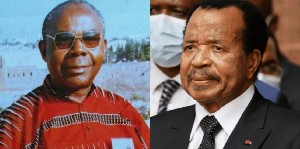Business, Busyness...Finding that Delicate Balance
In today’s rigid labor market space, employees are at risk of becoming victims of work overload and stress. The situation of demand-driven labor market dynamics leave workers at the mercy of a capitalist system whose prime interest may be to maximize productivity per capita so as to return a fair amount on shareholder’s capital. This overarching competitive tension arguably is what drives performance at the firm and industry level, ensuring growth in order to protect jobs and families in an economy.
Notwithstanding its positives, strong performance-oriented corporate cultures are very susceptible to burn-out leading to declining per capita productivity of employees in the long-run. This is particularly the case in competitive sectors such as banking, mining, brewery and telecommunications. Currently, there are 26 banks in within the universal banking space.
There is a historical context for the evolving competitive tension with the banking industry, which arguably, may be partly responsible for the comparably high stress levels in that industry. About a decade ago commercial and universal banks wielded strong a bargaining position against suppliers and customers enabling them to enjoy high gross margins through wide spreads and lower service cost.
Their profitability position was also consolidated by high entry barriers and low substitute availability. All that has changed now. Customer sophistication has increased thereby driving up customer acquisition and retention cost. The proliferation of non-bank financial institutions and money transfer services by the telecommunication companies, has further inebriated the hitherto competitive edge enjoyed by the traditional market leaders.
The sum total of all these evolving dynamics, is the pressure to maintain market shares and/or improve margins. The implication for employees and staff of companies within the banking industry and other sectors with similar competitive dynamics, is pressure on time and task. More output is demanded from employees for the same inputs provided.
Watch This Area In organizations where coaching is effective and measured for performance appraisal purposes, the chances of creating a productive environment of diversity and broad skill inventory, is very high. The resulting impact is the ease of managing annual leave schedule for direct reports. It is not uncommon to find that staff of certain organizations may have worked for a continuous period of 2 years without going on mandatory leave.
In some instances, this could be 5 years or more. The usual refrain is “this project” or “that project” being proffered as reasons for what may be a clear breach of the Labour Act 2003, Act 651. It is not for nothing that the Ghanaian legislators set out Section 31 in Act 651 to emphasize the importance of annual leave entitlement by employees.
Section 31, appropriately titled “Agreement to Forgo Leave to be Void.” It states, “Any agreement to relinquish the entitlement to annual leave or to forgo such leave is void.” This notwithstanding, many institutions, particularly Banks, have policies that render unused leave (wholly or partially) for a prior year, void after 1st quarter of the following year, even though such accumulation may not necessarily be the employee’s fault.
Coping Strategies The absence of known models for measuring stress directly and its consequent financial impact is part of the reason stress is not treated seriously as an operational risk issue.
In terms of coping, slacking off and setting aside regular periods of ‘doing nothing’ may be a productive way to induce states of mind that liven one’s imagination and improve mental health.
The benefits of tuning out and focusing on the present is gaining popularity in the corporate world with many executives now turning to Mindfulness-based Stress Reduction (MBSR), a form of meditation, to assist in decision making and problem solving.
Ideally time should be taken during the day to do “nothing”. It is important to use lunch breaks, not just for eating only, but for perspective-taking and emotional readjustment. This is particularly important for customer-facing functions. Due to the delicate nature of human interactions, people are bound to rub-off on you negatively. Breaks away from stressful interactions would enable the mind recollect the experience, learn lessons and recalibrate future responses.
A 5-minute walk around, to munch on groundnuts or snack on “Banfo Bisi” can be more productive than working through a lunch-break. There are two reasons why “doing nothing” is increasingly gaining mainstream attention for its strategic value and business impact:
It can trigger our imagination and creativity. In a sense, that period of deliberate inactivity can provide the critical resource to examine problems from different perspectives. In order words, the cognitive is active when the affective is calm.
2.“Doing nothing” is a valuable opportunity for stimulating the sub-conscious mind, the region where human creativity and progress emanates. The sub-conscious mind excels at integrating and associating information, by subconsciously carrying out associative searches across our broad database of knowledge. It explains the reason most breakthrough ideas come when a person is doing unrelated activities.
Great musicians are reported to have had “inspiration” for a hit song, while in a shower, for instance. Some call it inspiration, others, epiphany. Yet it is almost unanimous in the area of neuroscience, that the subconscious mind is responsible for such burst of creativity and insight.
Many psychologists have argued that, when people (workers) fail to make allowance for periods of uninterrupted minimal activity, basked in reflection of self and circumstance, there is a risk of diminished insight, low creativity and zero to no personal growth. The collective impact on organizational performance cannot be overemphasized.
Changing the Culture If Ghanaian Banks are serious about being globally competitive, it is important to ride the crest of this wave that encourages balance, energy and creative release. Interestingly, giant brands, some of whom are drivers of social media innovation, have instituted workplace mechanisms to promote thought incubation as a way of moderating stress and stimulating creativity.
Google, Twitter and Facebook are prime examples. A cultural revolution among Ghanaian companies therefore must take the following into consideration: 1. Job design that focuses on high-value adding activities.
2. Workplace mechanisms that encourage more informal interactions outside of formal work activities.
3. Making coaching a ratable performance measure for all managers to ensure skill diversity and responsive succession arrangement at both operating and strategic levels.
The author is a director of Metis Decisions LLC, a professional services company registered in Ghana under Act 179. Twitter: @nkunimdini
Opinions of Friday, 21 November 2014
Auteur: Nkunimdini Asante-Antwi














